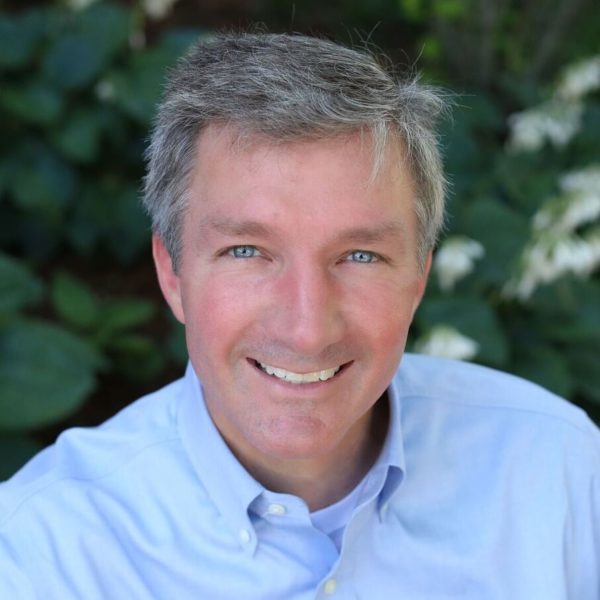“Seeking the Well-Being of the City”
Jeremiah 29:4-7,11-14; Acts 2:41-47
March 3, 2019
Before we read Scripture, I want to offer two definitions and one acknowledgement.
The first definition to offer is that of “welfare”. According to Oxford Dictionary online,
“welfare” is defined as “health, happiness, and fortunes of a person or group.”
A common synonym for welfare is “well-being.”
When you hear the prophet speak of seeking the community’s welfare, consider the word “well-being.”
The second definition to consider is exile.
In our Jeremiah text, the prophet was talking about Babylon, today’s Baghdad,
where all of the leading citizens of Jerusalem had been carried off and plopped down to survive,
and to share whatever culture and brain trust might be helpful to Nebuchadnezzar’s regime.
We may struggle to imagine what that must have been like, to have been the spoils of a horrific war,
and to find yourselves in a foreign land, with a different language, different food,
different laws, different expectations and understandings.
As Vernon is wont to do, he helped us consider this week what “exile” might mean in our own context.
Have you ever felt like you were stuck somewhere, plopped down, you didn’t belong –
whether in a job or a school or a family?
Have you ever felt like someone else was pulling the strings in your life
and you had little to no control over your external circumstances?
None of us may have been captured and forced to live in a hostile land,
but all of us have had at least a few “left turns” in life
that forced us to cope with what we did not choose, that may have left us lost, angry, disappointed.
So, for considering today’s text about exile, we broaden our definition.
The acknowledgement is that this has been an emotional week, a difficult week,
where many of us have spent the past days in a form of exile.
This sermon was written in the context of the shock and grief we have experienced as a community
in the death of a fine young man, a 17-year-old.
As those who have grieved may understand, one of Bryce’s friends
said he felt as though he has been living for the past days in some alternate universe.
The whole world around him is continuing to function as normal –
people are still going to school and to work, and there are ballgames and practices –
but his heart and mind and soul are on some parallel journey where nothing seems normal anymore.
The prophet’s words speak to this condition, this condition of exile…
Jeremiah 29:4-7,11-14
Thus says the Lord of hosts, the God of Israel, to all the exiles whom I have sent into exile from Jerusalem to Babylon: Build houses and live in them; plant gardens and eat what they produce. Take wives and have sons and daughters; take wives for your sons, and give your daughters in marriage, that they may bear sons and daughters; multiply there, and do not decrease. (And) seek the welfare of the city where I have sent you into exile, and pray to the Lord on its behalf, for in its welfare you will find your welfare…For surely I know the plans I have for you, says the Lord, plans for your welfare and not for harm, to give you a future with hope. Then when you call upon me and come and pray to me, I will hear you. When you search for me, you will find me; if you seek me with all your heart, I will let you find me, says the Lord, and I will restore your fortunes and gather you from all the nations and all the places where I have driven you, says the Lord, and I will bring you back to the place from which I sent you into exile.
Our Community Groups have been reading together the book God, Improv, and the Art of Living.
The author, Maryann McKibben Dana, encourages us to live with a “Yes…and…” attitude.
Say yes to the opportunities of life, even when saying yes may be risky or costly, then say “and”…
In other words, as Dana writes, accept our current reality after we’ve said “yes” not grudgingly,
but commit our whole selves to what may be possible next.
Jeremiah urges the people to say “Yes” to life, even in exile,
to keep living their lives, keep doing the things you do to work for the future…
and…, as you do so, seek the well-being of the broader community.
The prophet cries out, even in potentially the worst possible conditions we might imagine,
continue living your life, put one foot in front of the other, do your work,
build your homes, marrying off your children….
Say “yes” to life, “and”…seek the well-being of the broader community where you find yourself,
“and” pray for the well-being of the community, for in its well-being you will find your well-being.
Our New Testament reading comes from the second chapter of Acts,
that wonderful story of the day of Pentecost, fifty days after Easter,
the day the church was born,
when believers in Jerusalem began to build upon the foundations of Christian community.
Our text comes just after Peter’s rousing sermon to the crowds.
The crowds had gathered early on a Sunday when they heard the disciples
proclaiming the gospel of Jesus in various languages.
Acts 2:41-47
So those who welcomed his message were baptized, and that day about three thousand persons were added. They devoted themselves to the apostles’ teaching and fellowship, to the breaking of bread and the prayers.
Awe came upon everyone, because many wonders and signs were being done by the apostles. All who believed were together and had all things in common; they would sell their possessions and goods and distribute the proceeds to all, as any had need. Day by day, as they spent much time together in the temple, they broke bread at home and ate their food with glad and generous hearts, praising God and having the goodwill of all the people. And day by day the Lord added to their number those who were being saved.
All who welcomed and responded to the message of the apostles came together in Jerusalem,
and they had all things in common.
They spent much time together at the temple in fellowship and worship,
and they spent significant time around their tables at home,
breaking bread, praying together, sharing daily life with all of its ups and downs.
When someone had a need, someone or several persons in the group would sell something,
and they would gather resources together, and the need would be met.
When Luke claims that they had all things in common,
what we realize was that it was not only the material goods and the food that they shared;
they shared themselves, their lives, their hopes, and dreams and fears, with one another.
Frederick Buechner, a prolific writer, poet, novelist, theologian and Presbyterian pastor,
published some thirty books.
One of the clearest messages Buechner has woven into his many books is to pay attention—
pay attention to your life, to the people with whom you are closest, to the things that happen to you.
This, according to Buechner, is the best, and most authentic, way
to experience yourself and to experience God.
In his book, Listening to Your Life, Buechner speaks of unexpected tears.
Those of us who have spent time with the Ellis family this week,
or spent time with the high school youth who knew Bryce well,
have known the common experience over the past days of unexpected tears.
They just well up without warning.
Others of you, who may be hoping for something or grieving over someone
or worrying about something or for some other reasons,
may have known the surprise during some stage of your life of sudden and unexpected tears.
Buechner writes: “You never know what may cause (unexpected tears).
The sight of the Atlantic Ocean can do it, or a piece of music,
or a face you’ve never seen before. A pair of somebody’s old shoes can do it….
You can never be sure. But of this you can be sure.
Whenever you find tears in your eyes, especially unexpected tears, it is well to pay the closest attention.
They are not only telling you something about the secret of who you are, but more often than not
God is speaking to you through them of the mystery of where you have come from
and is summoning you to where, if your soul is to be saved, you should go next.” (Beyond Words)
Today, many of us will pack meals for school children far away, some 12,000 meals!
As we do so, pay attention to the children and youth right here in our midst.
Youth and children, pay attention to one another, and to the adults around you.
Thank God for the people around you, thank them for being here, get to know them by name.
Say “yes” in risking to love them, and say “yes” to seeking and praying for their well-being.
The sacred belonging of a community emerges, even among people of diverse ages and backgrounds,
when we are willing to share all things – our food as well as our hearts,
our affirmations as well as our questions, our joys as well as our brokenness.
When Jesus gathered around this table with his disciples in that upper room,
those young men and the women with them were about to embark upon an experience of exile.
They would soon become disoriented, lost, angry, afraid.
They would live, in those days after the crucifixion and the wonder of Easter,
as if they were in some alternate universe.
The world around them would keep on going, people would continue their lives as normal,
as if the whole world had not just changed.
But the world had changed, and the disciples were called to proclaim it.
It took them seven weeks, fifty days of prayer and waiting and preparation, then they said “Yes!”,
we will proclaim the gospel, Yes, we will do so at some risk and great cost,
“Yes”, we will seek the well-being our community, “and” we will continue to pray together
and break bread together, as we share the ups and downs of daily life.
Jesus knew exactly what he was doing in instituting this ritual.
In order to be sustained by the grace of God for the difficult journey ahead,
they would need to gather regularly together at table, to remember what Jesus had taught them,
to live and serve from his strength, and to anticipate being with him again.
This is not just bread and juice – this is spiritual food.
This food is the sustaining, healing, mercifully redeeming grace of God.
As we receive the sacrament today, whatever form of exile we may be in,
let us say “yes” to what we are doing and why we are doing it,
“and” let us do this on behalf of a broader community whose well-being we seek
every time we gather at this table.
To God be all glory, honor, and power, now and forever. Amen.
Rev. Dr. Todd Speed
Decatur Presbyterian Church
Decatur, Georgia



